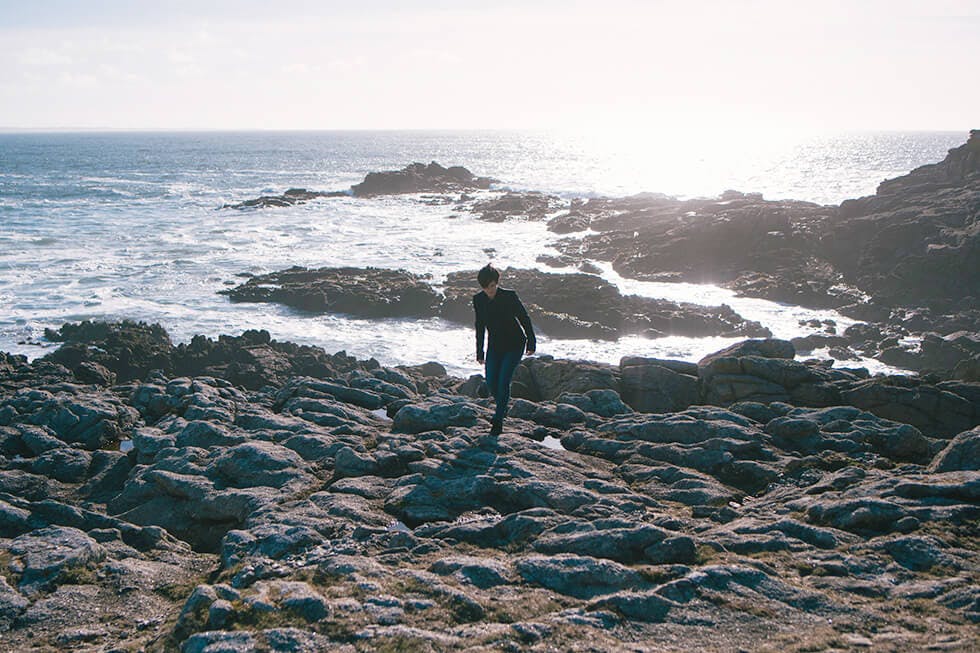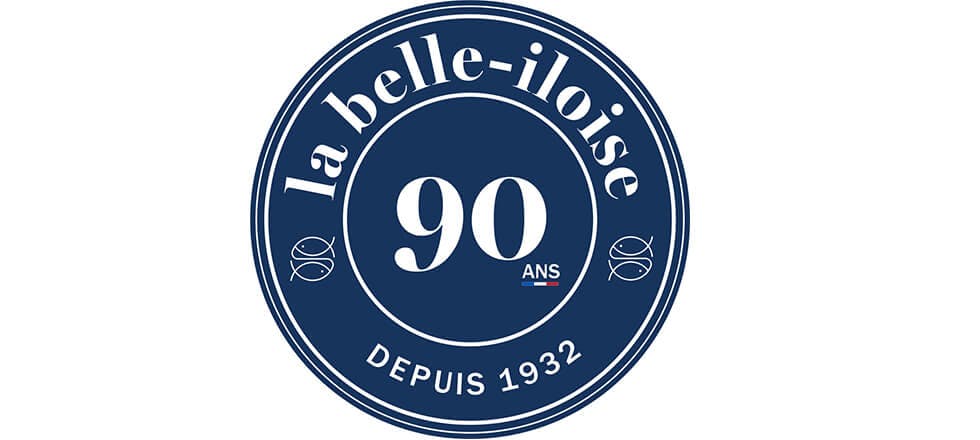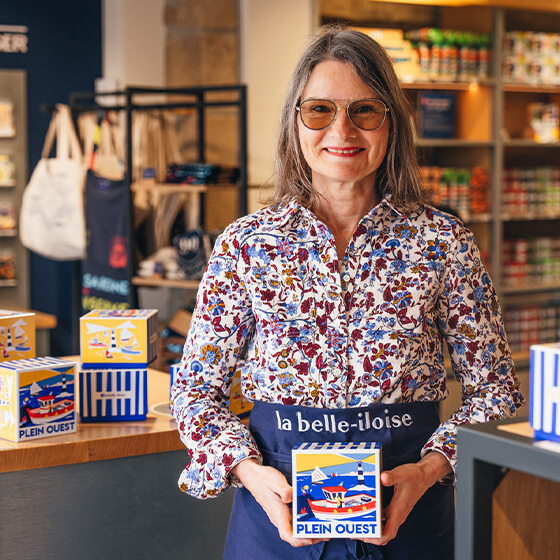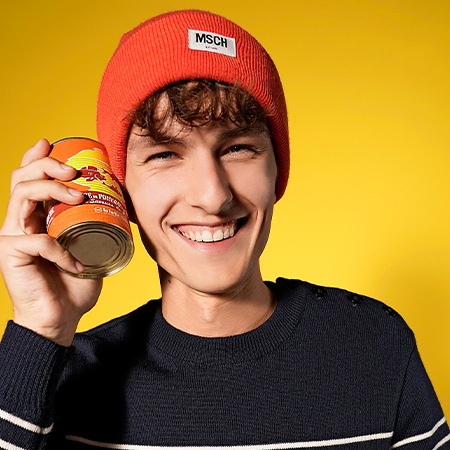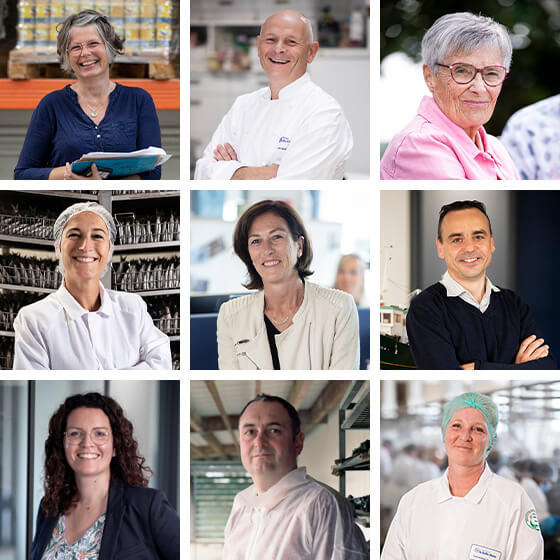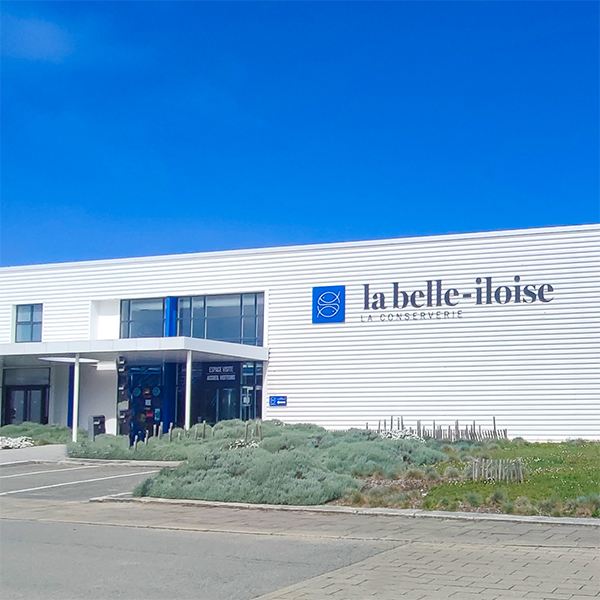Celebrating 90 years! #1 Caroline Hilliet-Le Branchu

Celebrating 90 years of existence by sharing the stories of the men and the women who have made, and continue to make, la belle-iloise. Meeting them, asking them questions, going through their lives. That's what we're bringing you, in images and words, to spend a moment together on this anniversary.
Let’s start with the one at the helm of la belle-iloise since 2011: Caroline Hilliet Le Branchu, President & CEO at la belle-iloise, and the founder’s grand-daughter.

WORK
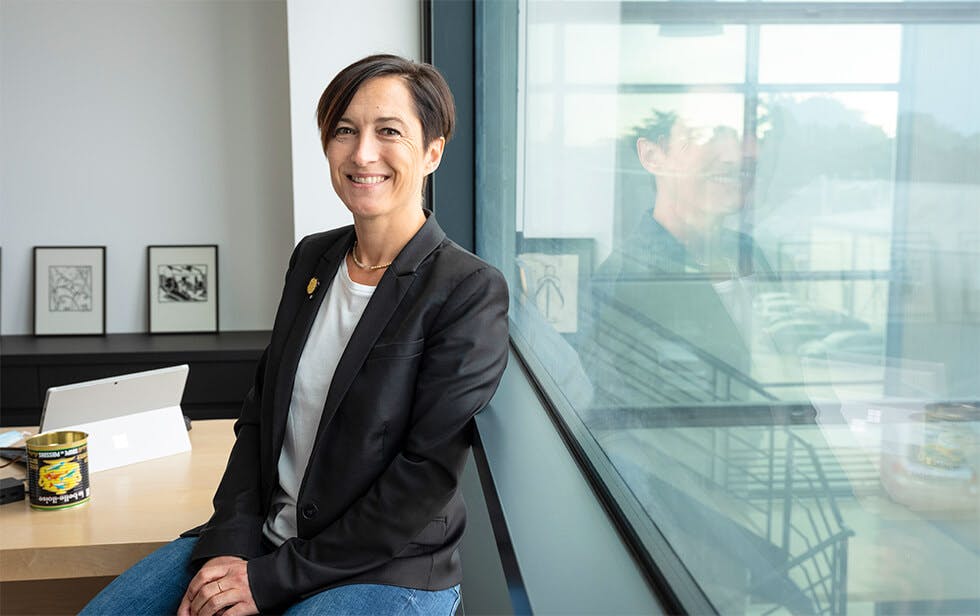
- Is running a business more a source of stress or joy?
It’s a great deal of satisfaction, above all. Of course, there are difficulties and unexpected events. But who doesn’t have those? When you reach a summit, you’re delighted: you’ve succeeded after working so hard to get there. And a company is similar in that regard. It’s like climbing a mountain range. When you get where you wanted to be, you’re pleased with the efforts you made and proud of the result at the same time. And then you tell yourself: “Right, let’s climb another!” And off we go, together. It’s exhilarating and makes me proud. What we achieved in 2020–2021 is a case in point. Together with all our teams, we did incredible things to ride out the situation and the difficulties it brought. Thanks to those efforts, la belle-iloise made it out the other end, which was a source of immense pride.
What I love about this company is that it is a group adventure. Working with people can be difficult at times: one moment, you understand one another, and the next you don’t. Likewise, you can go from being in agreement to disagreement. But it’s such an enriching and stimulating experience. Writing the next pages of the company’s story is what drives me. Twenty years ago, there were 5–6 people in the offices, now that’s more like a hundred. And yet, it’s the same human adventure.
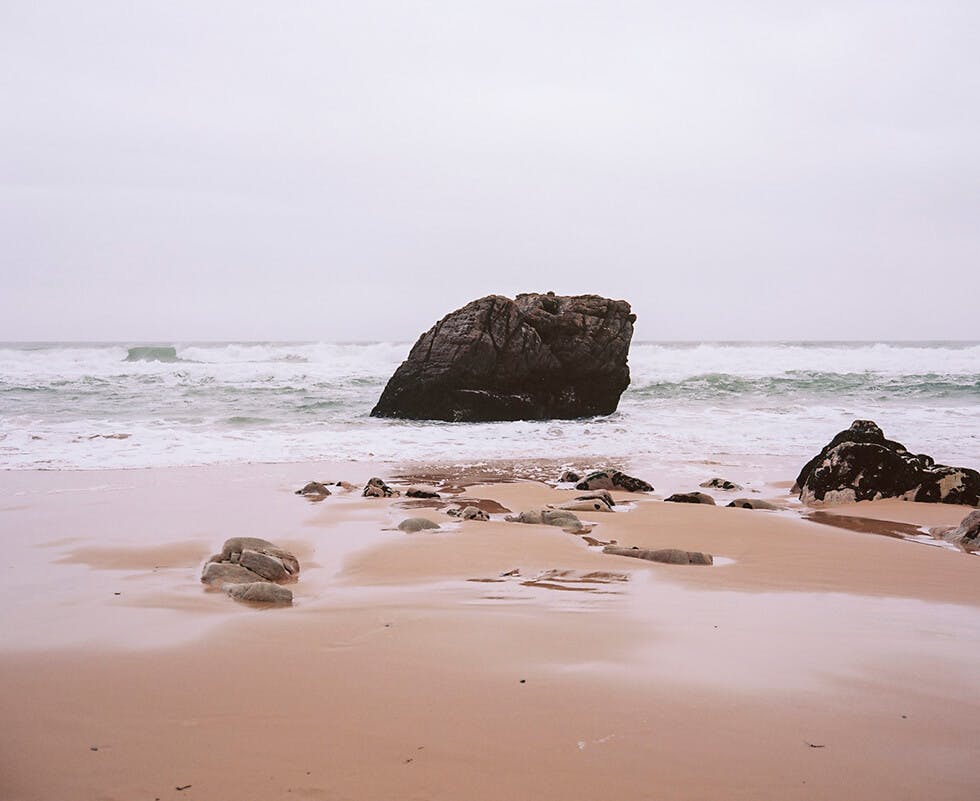
- Do you have role models (fictitious or real) who have inspired you?
My father. He taught me and inspired me. We’re different and not from the same generation, but it’s clear that my demands for the utmost quality come from him. And there’s my mother, too, who has been a great source of calming, generous support.
Other than my family, I don’t really have a role model. But I am highly impressed by those who can invent things that change our lives. I ask myself: “How did they come up with that idea? How did they dream that up?” It’s fascinating because there is a before and an after. They invent something on the strength of their convictions that may become commonplace for all. Transforming a desire to be useful into ideas and then turning them into reality is fantastic. That is what a company should do.
- You have headed la belle-iloise since 2011. How do you go about making projections for the future?
Above all, you need to picture where you want to go and where you want to take the company. Having a vision is key. And then you have to believe in it. It’s about asking yourself the right questions: “What am I passionate about? What do I want to achieve?” They are personal projections that drive the vision, which we then work on collectively to decide the direction to pursue together. The challenge is then for each and every one to appropriate this vision within the teams. There must be discussions, communications, and illustrations with concrete examples, to get everyone on board so that they can find their place and be a stakeholder in this mutual project.
COMMITMENT
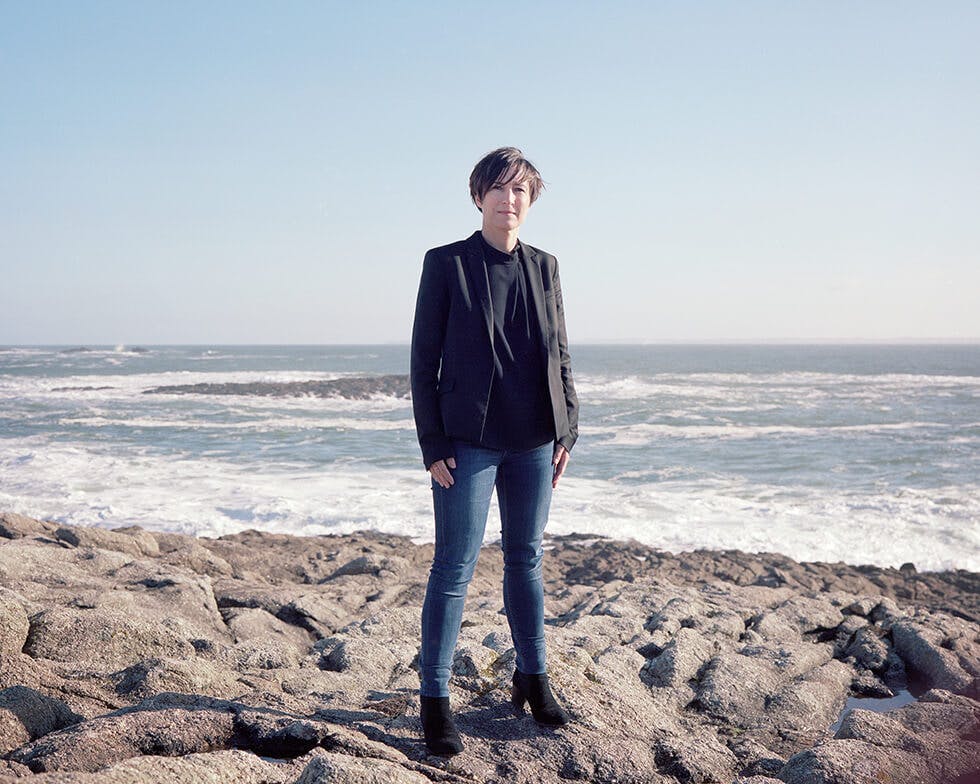
- What personal beliefs do you have that help you move ahead?
As a businesswoman, I have a responsibility to ensure that the company is of use in our sector and its ecosystem. What’s more, I strongly believe you are what you eat: the way in which we eat affects our health and environment.
In France, the food industry has built up solid know-how, which it applies to rich lands, and is working towards using more sustainable production methods. But there is still a way to go, and our companies must continue to strive for excellence.
- How do you view the world today?
Climate change and the collapse of biodiversity are very real. As to the impacts they will have on us, and how to minimise them, that’s the challenge we face today. There are two ways of seeing things: either we do nothing, telling ourselves that there’s no hope, or we adopt a more optimistic vision of things. There are people with good ideas who believe we can indeed succeed and are coming up with solutions. And I am steadfast in the belief that the more of us who act, the better the outcome.
Not everything in the world of tomorrow will be the same, but that is not necessarily bad. We are entering a new era, and the changes are already upon us. When you move from one world to another, there is a period of time in between. We are in the midst of this period of transition right now. We know where we’ve come from, but we don’t yet know where we are headed. We are in the process of inventing it. As such, it’s better to be as flexible as possible.
FAMILY
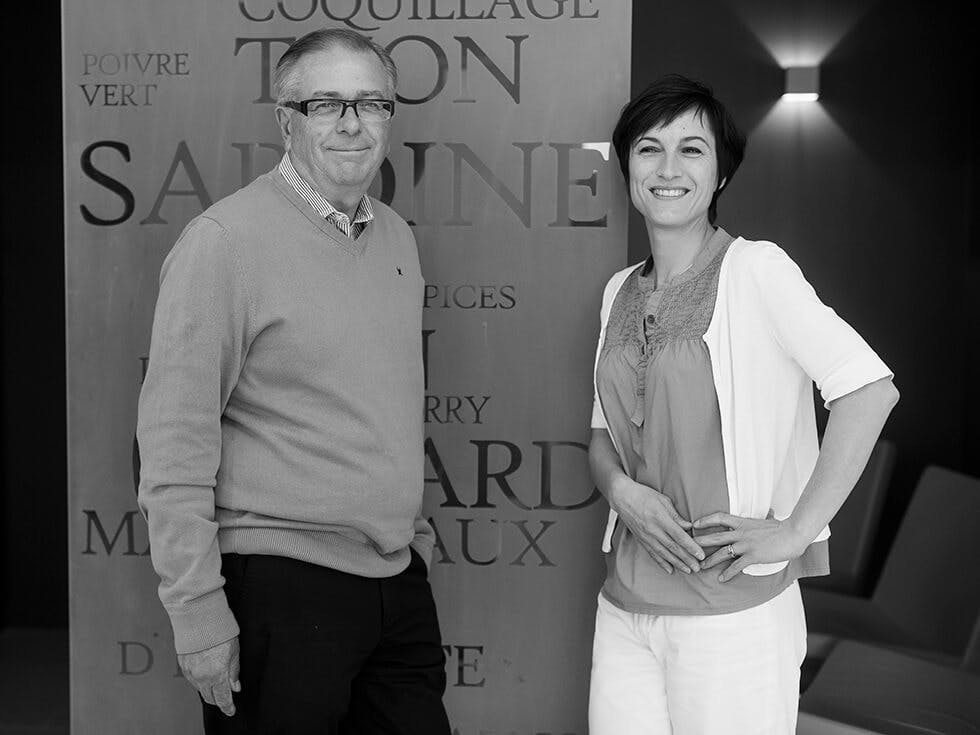
- What does family mean to you?
Family is what makes us and contributes to what we will become. We each have a history that we carry, whether akin to baggage, a deadweight or a halo, we carry it, nonetheless. My values, who I am, have clearly come from my family. And if I have a problem, I know that I can count on them. It is a solid foundation, a source of great strength. With family, you can overcome disagreements and differences. It is about learning to live together. Family is incredibly important to me. For example, we have always celebrated Christmas together, and I have never missed one since my birth. It’s so very important, it’s symbolic.
- What has your family instilled in you that you would like to pass on to your children?
The fundamentals: respect, tolerance, and openness of mind. It’s what my parents taught me. That whoever we are, whoever is opposite, there is always something worth listening to.
MEMORIES
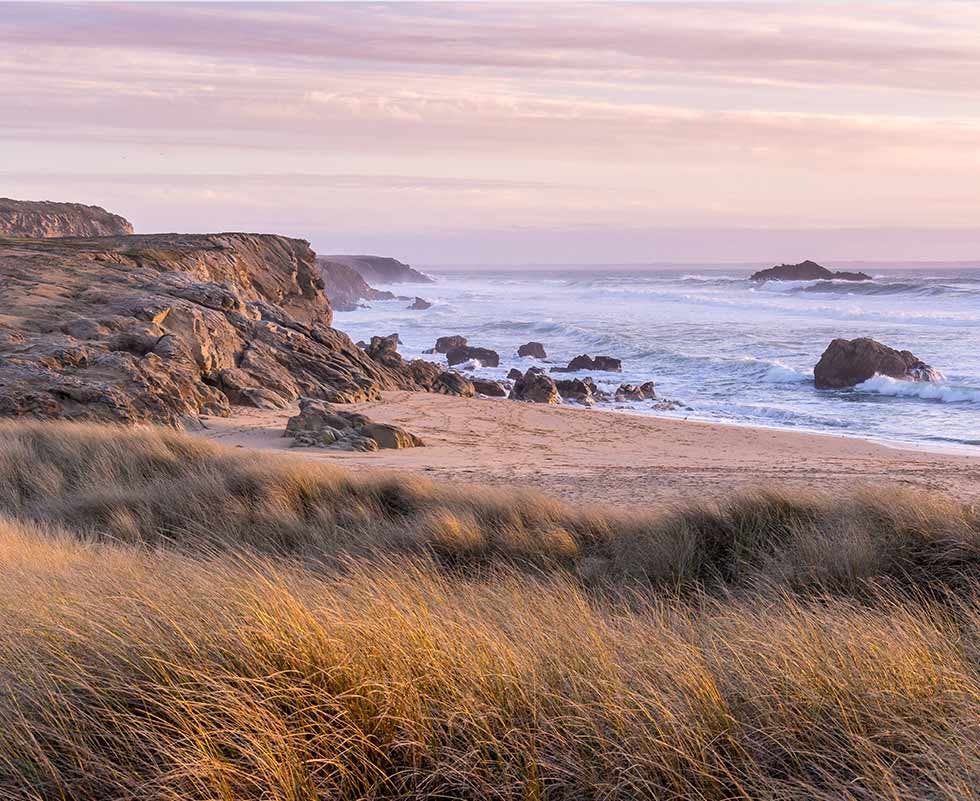
- If you had to associate Quiberon with one specific memory, what would it be?
When I think of Quiberon, I think of the Côte Sauvage. As a child, it was the road we took to go home. And as an adult, when I lived in Lille or Paris, I would always take that route to go to see my parents. I would open the windows as I needed to breathe in the sea air. As soon as I got there, I would head off on foot along the Côte. I love it. It’s beautiful. You see the horizon, with nothing blocking your view.
- Looking back, what makes you most proud?
The moment my father handed over the reins to the company. I was 36. That’s young. Although we had prepared for this transition over five years, it was a real vote of confidence. When I see where the company is now, and the road we have travelled since, I’m proud. Proud to have been worthy of this trust, and to have chosen the right people. It’s vital to have good people working with you. Aside from individual pride, there is above all, pride in the team that got us here.
- What would the child you were have said to the woman you are now?
She would have said “No way!” As I had always liked action and change, my worst fear would have been working in an office. I wanted to have an active job, one where I was outdoors.
But as it turns out, I love my job. I may not move as much as I would have liked, but the topics I tackle every day vary and the company is changing. It is transforming because the world in which we live is changing. In other words, running a business means never having one day that resembles the other. You always need to question yourself, learn, and imagine a different future. Seeing as I have always loved change, I’m thrilled. What’s more, I live in a fantastic region where I have been lucky enough to see my children grow up.
EATING WELL
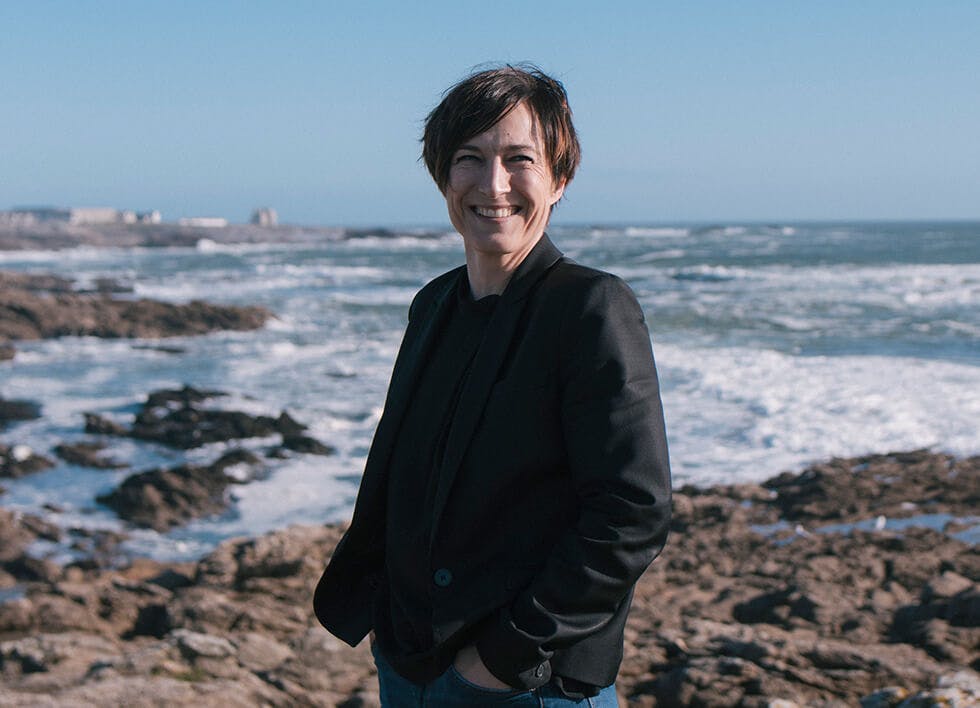
- As a child, what was your comfort food? Saint Georges sardines or sardines and cream?
Tuna fillets. The ventrêche, the fleshy part of the abdomen, placed in tins with a drizzle of olive oil. It’s delicious and has a subtle taste.
- What about now?
Today, it’s more the whole sardines or mackerel fillets that do it for me. I love our mackerel fillets and the classics: with mustard, tomatoes, white wine, and so on. I also use a lot of tuna and flaked fish to make salads. In fact, with tins, things couldn’t be things easier if you tried. And everyone loves that at home. It’s very much part of our daily lives. For example, our go-to for an aperitif is to mix a tin of sardines with a little cottage cheese and diced shallots. It’s delicious with carrots or on a bit of bread. Or else, my sons often eat the spreads as a snack before or after a meal. Teenagers eat a lot after all! As it happens, one of mine, who is a student, always carries along a pack of belle-iloise tins in his bag.
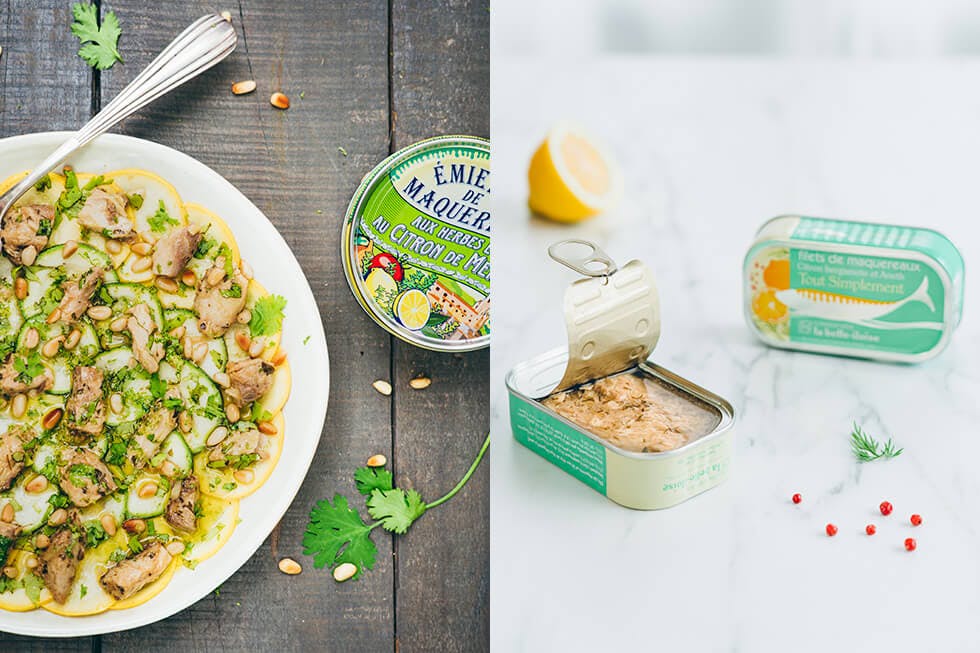
- What does eating well mean to you?
Eating well means eating in a healthy manner. That means having a balanced diet. Personally, I eat vegetables all the time. There is never a meal without a vegetable in sight. Eating well also means respecting the great taste of products. I keep a close eye on the quality of products as I don’t cook them a lot, I simply enhance the taste with a few spices. The products have to be ultra-fresh to keep the goodness of the vitamins and minerals.
Eating well means enjoyment. I love spending time in good company and the slightly festive feel of a meal: ringing a bell, enjoying a meal whether at home or at a restaurant. For me, meals are eaten together. The table is made for sitting down and sharing. A meal is no small matter, it’s an important moment.
- Why are you raising awareness about eating well today?
We now know that health comes through food. I am convinced of this fact. But there is eating well for a balanced diet, and eating well for the environment. And I wasn’t really that aware before. I used to eat a balanced diet and buy vegetables, but I never asked myself where or how the goods were produced. As an example, I would buy courgettes in winter. But I slowly understood that eating also has an impact on the environment. That’s why you have to raise awareness so that everyone is informed.
- In your opinion, are tins a 21st century product?
Yes, absolutely. They are a fantastic product: there’s no need for a fridge to store a tin, it keeps for years, and the only thing you have to do is open it. It’s also full of nutrients, providing you put good things into it. So I genuinely think it is a product for the future. It may seem a bit austere and old-fashioned to younger generations, but it is up to us as canners to make them more attractive.
THE FUTURE
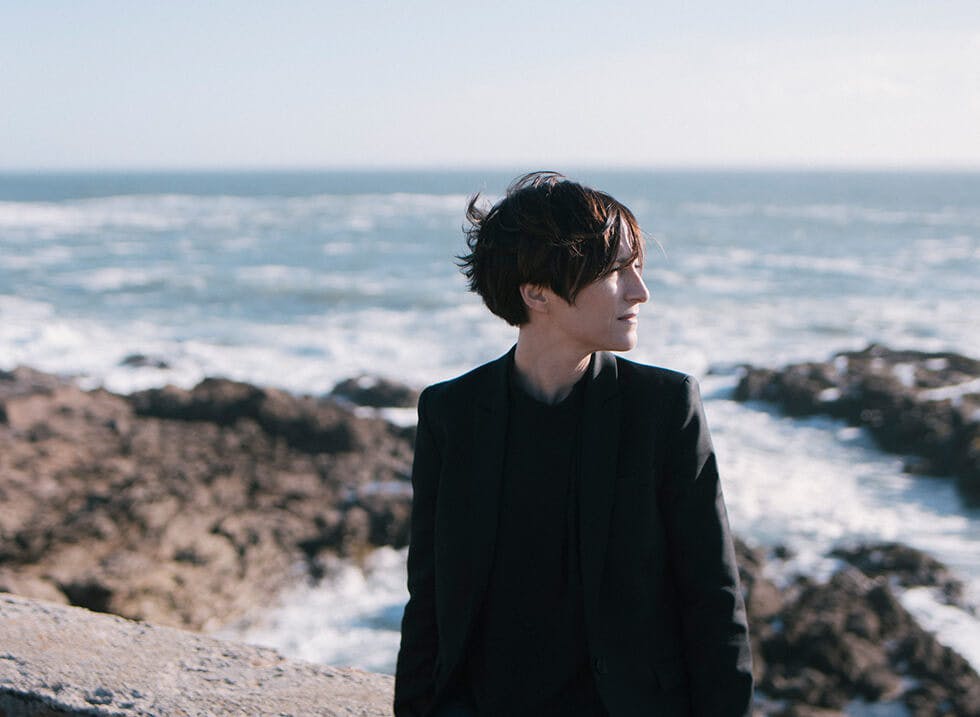
- If you had a magic wand, what would you do?
I would make sure that we could eat responsibly everywhere in the world. Even in France, what you find isn’t always produced ethically. For example, we import raw materials because they are cheaper, and we export these same materials to other countries. It makes no sense. I would like us to put an end to these useless flows and for us to have a better grasp of the seasonality of products. Too many things continue to be consumed outside of their season, just out of habit.
- Imagine we are in March 2032, the sun is rising over the Quiberon, and la belle-iloise is celebrating its 100th anniversary. Where will the company be?
In 2032, la belle-iloise will have fulfilled its promise: everyone will be able to combine eating healthily and eating for pleasure. The company will be so much more than just a fish cannery. It will still be there of course, because what we do, we do very well, but we will do even better in the future. And we will have gone even further. We’ll have a bigger range and the experience to contribute further to healthy eating.
